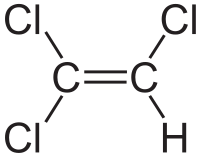
Photo from wikipedia
&NA; CNS actions of the chemokine CCL2 are thought to play a role in a variety of conditions that can have detrimental consequences to CNS function, including alcohol use disorders.… Click to show full abstract
&NA; CNS actions of the chemokine CCL2 are thought to play a role in a variety of conditions that can have detrimental consequences to CNS function, including alcohol use disorders. We used transgenic mice that express elevated levels of CCL2 in the CNS (CCL2‐tg) and their non‐transgenic (non‐tg) littermate control mice to investigate long‐term consequences of CCL2/alcohol/withdrawal interactions on hippocampal synaptic function, including excitatory synaptic transmission, somatic excitability, and synaptic plasticity. Two alcohol exposure paradigms were tested, a two‐bottle choice alcohol (ethanol) drinking protocol (2BC drinking) and a chronic intermittent alcohol (ethanol) (CIE/2BC) protocol. Electrophysiological measurements of hippocampal function were made ex vivo, starting ˜0.6 months after termination of alcohol exposure. Both alcohol exposure/withdrawal paradigms resulted in CCL2‐dependent interactions that altered the effects of alcohol on synaptic function. The synaptic alterations differed for the two alcohol exposure paradigms. The 2BC drinking/withdrawal treatment had no apparent long‐term consequences on synaptic responses and long‐term potentiation (LTP) in hippocampal slices from non‐tg mice, whereas synaptic transmission was reduced but LTP was enhanced in hippocampal slices from CCL2‐tg mice. In contrast, the CIE/2BC/withdrawal treatment enhanced synaptic transmission but reduced LTP in the non‐tg hippocampus, whereas there were no apparent long‐term consequences to synaptic transmission and LTP in hippocampus from CCL2‐tg mice, although somatic excitability was enhanced. These results support the idea that alcohol‐induced CCL2 production can modulate the effects of alcohol exposure/withdrawal on synaptic function and indicate that CCL2/alcohol interactions can vary depending on the alcohol exposure/withdrawal protocol used. HighlightsCCL2/alcohol interactions alter hippocampal synaptic responses.CCL2/alcohol interactions alter hippocampal synaptic plasticity.CCL2/alcohol interactions vary across alcohol exposure paradigms.
Journal Title: Neuropharmacology
Year Published: 2018
Link to full text (if available)
Share on Social Media: Sign Up to like & get
recommendations!